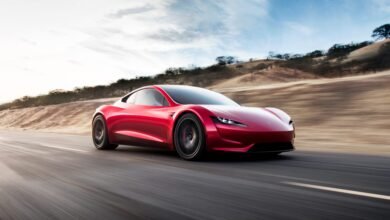Tesla’s Success Validates Elon Musk’s Bold Vision

▼ Summary
– Tesla shareholders overwhelmingly rejected a proposal to repeal a bylaw making it nearly impossible for regular shareholders to sue the company, despite warnings from New York State Comptroller Thomas DiNapoli.
– Shareholders consistently side with Tesla’s board and Elon Musk, rejecting accountability measures like preventing child labor in supply chains or linking executive pay to sustainability metrics.
– Musk promotes a vision of “sustainable abundance” involving self-driving cars and robot helpers, but this lacks concrete plans to address Tesla’s declining sales or regulatory challenges.
– Shareholders approved a massive compensation package for Musk, which a Delaware court invalidated due to board independence concerns, prompting Tesla to appeal and move its legal home to Texas.
– Tesla’s stock value relies heavily on investor enthusiasm and Musk’s futuristic promises rather than business fundamentals, making it behave like a meme stock despite declining sales.
The most revealing moment at Tesla’s recent shareholder gathering wasn’t the expected approval of Elon Musk’s monumental compensation package. Instead, what truly captured attention was the audience’s reaction to a proposal aimed at increasing corporate accountability. When New York State Comptroller Thomas DiNapoli suggested repealing a bylaw that limits shareholder lawsuits, the crowd responded with loud disapproval, demonstrating their unwavering support for Musk’s leadership vision.
Tesla shareholders consistently align with the company’s board recommendations, particularly those championed by Musk himself. This pattern repeats annually as investors reject proposals concerning supply chain ethics, sustainability metrics in executive compensation, and other governance measures. The collective enthusiasm extends to approving measures that dilute their own holdings while embracing Musk’s futuristic promises of autonomous vehicles, household robots, and unlimited clean energy.
Musk describes his vision as achieving “sustainable abundance,” where humanity enjoys material prosperity while preserving natural beauty. However, this optimistic outlook doesn’t directly address Tesla’s current operational challenges, including declining vehicle sales, reduced government subsidies for clean energy, and regulatory scrutiny over autonomous driving technology. The vision also overlooks how Musk’s external activities, from political affiliations to social media management, have impacted Tesla’s public image.
The shareholder meeting environment appears insulated from these practical concerns. DiNapoli’s recorded message highlighting governance issues received vocal opposition from attendees. He specifically noted the board’s lack of independence and Musk’s divided attention across multiple ventures, arguing that the compensation package would grant the CEO unprecedented power without adequate oversight.
The controversial bylaw at issue requires shareholders to possess at least 3% of Tesla’s stock, approximately $44 billion at current valuation, to file derivative lawsuits. While Tesla’s board defends this as protection against frivolous litigation, DiNapoli contends existing judicial mechanisms already filter meritless cases.
This isn’t the first compensation controversy for Tesla. A Delaware court previously invalidated Musk’s $50 billion pay package, determining the board hadn’t maintained proper independence from the CEO. Despite two shareholder approvals of the package, the court maintained its position, prompting Tesla’s appeal and a successful vote to relocate the company’s legal headquarters to Texas.
Many investors operate under the assumption that Musk’s success directly translates to their own financial benefit. The new compensation structure ties Musk’s rewards to increasing Tesla’s market valuation to $8.5 trillion within ten years. However, analysis reveals Musk stands to gain substantially even with minimal performance, 200 million shares for simply maintaining his position, plus billions more for achieving basic targets alongside modest stock growth.
This dynamic reflects Tesla’s unique position in financial markets. The company functions as something of an original meme stock, with its valuation often disconnected from traditional business fundamentals. Despite facing potential consecutive years of declining sales, Tesla’s stock has appreciated over 10% this year, suggesting that investor faith in Musk’s vision continues to influence market performance regardless of operational realities.
(Source: The Verge)





